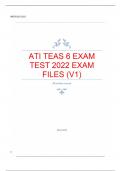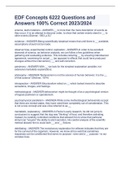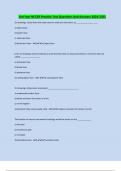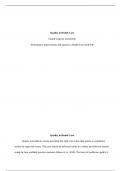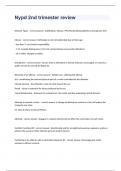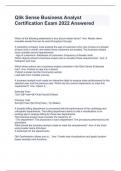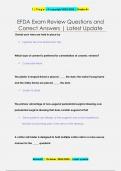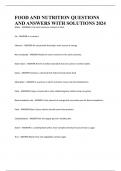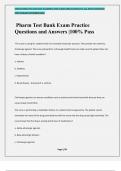Exam (elaborations)
Personal Financial Planning 2nd Edition By Altfest - Test Bank
- Course
- Institution
Test Bank Questions, Chapter 3 Test Bank Questions, Chapter 1 1. Which of the following is the market-established worth of a product or a financial instrument? a. Market value b. Fair value c. Cash flow d. Investments e. Book value Answer: a 2. Which of the following best defines...
[Show more]




